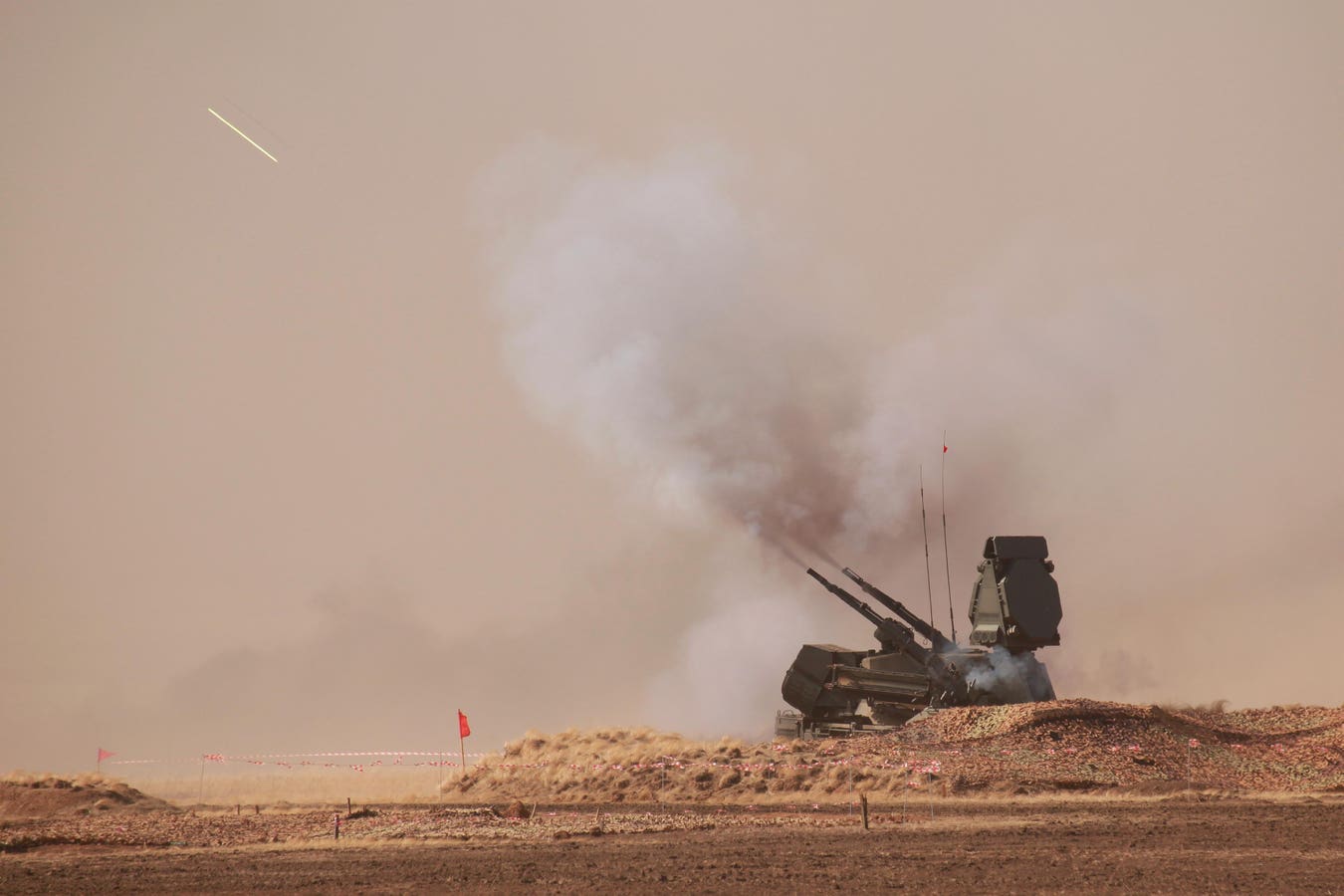In light of a deadly drone attack against the Khor Mor gas field in Iraqi Kurdistan, Kurdish authorities have stressed it is the responsibility of the Iraqi central government in Baghdad to defend the site against air attacks. Iraq may have the systems required to protect against similar attacks in the future but may not have the political will to deploy them.
On April 26, a drone strike against the Khor Mor gas field in the Chamchamal district of Iraqi Kurdistan’s Sulaimani province killed four Yemeni nationals and injured others working at the site. The attack also halted gas supplies to power plants and saw a reduction of around 2,500 MW of power. The gas field provides electricity to the autonomous Iraqi Kurdistan region and Kirkuk and Nineveh provinces.
While no group claimed responsibility for the attack, Iran-backed militias in Iraq have targeted Khor Mor before with similar, albeit less fatal, attacks.
Shortly after the latest attack, the Kurdistan Regional Government Electricity Minister Kamal Mohammad Salih stressed that Kurdistan did not fail to defend the site from the ground but emphasized that “when it comes to aerial protection, that is the responsibility of the federal government.”
The former Chief of Staff of the Iraqi Army, General Babikir Zebari, also stressed in the wake of the attack that Iraqi Kurdistan “must be equipped with anti-missile and defense systems to counter the looming danger posed by these militias.”
In light of repeated drone and missile attacks, some directly from Iran, against Iraqi Kurdistan in recent years, the 2024 National Defense Authorization Act notably included a provision for supplying Iraqi Kurdistan’s Peshmerga armed forces with air defenses. While it did not specify what type, it would presumably be a relatively short-range system capable of point defense, such as the C-RAM the U.S. has previously used to defend against militia drone and rocket attacks targeting its troop base in Iraqi Kurdistan’s Erbil International Airport.
It remains unclear when Iraqi Kurdistan will ultimately receive any air defenses. As an autonomous region, it cannot acquire or purchase air defenses for itself without going through the central government in Baghdad.
Electricity Minister Salih’s comments about Baghdad’s responsibility for defending Khor Mor—later disputed by Iraq’s oil minister—from aerial attacks were noteworthy, as they suggest Iraqi Kurdistan would be open to Iraq deploying air defenses at the critical site to jointly enhance security.
While political relations between the KRG and Baghdad have seen better days, they have had successful security cooperation in the disputed territories, where the Islamic State previously exploited large security gaps between the Iraqi military and Peshmerga lines. Having Baghdad deploy air defenses at Khor Mor could build upon this cooperation.
Iraq’s self-propelled, medium-range Pantsir-S1 systems could prove suitable for protecting Khor Mor, especially against drones. After all, the Russian system is designed for point air defense against critical military or civilian installations like Khor Mor.
Iraq also has a self-interest in providing air defense for Khor Mor. A mere month before the deadly April 26 attack, Iraq’s electricity ministry said it seeks to purchase gas from Khor Mor to meet its requirements and avoid power shortages this summer. Therefore, further disruptions from attacks would presumably not be in Baghdad’s interest.
Joel Wing, author of the authoritative Musings on Iraq blog, is skeptical that such an arrangement could be made.
“Rules are always up for negotiation in Iraq, so anything is possible,” Wing told me. “Since the KRG has been targeted so many times by pro-Iran groups and Erbil has a good relationship with Washington, some kind of air defense could be sent its way.”
“I would highly doubt that Baghdad would agree, however, since it has no real air defense system of its own,” he added. “Since the groups responsible for the attacks upon Kurdistan are part of the ruling Shiite coalition, the idea that Baghdad would give self-defense systems to the KRG is highly unlikely.”
These Iran-backed armed groups also have a motive in undermining Iraqi Kurdistan’s gas sector through attacks like the ones against Khor Mor. A recent Iraqi news analysis reasonably speculated on “the existence of ‘regional’ motives aimed at curbing the aspirations of the Kurdistan Region and Iraq to enter the global gas market.”
That is likely the case. Iran first attacked Iraqi Kurdistan’s capital city, Erbil, directly with ballistic missiles on March 13, 2022, claiming it was striking an Israeli spy base. In reality, it destroyed the home of a wealthy Kurdish businessman involved in talks over exporting Iraqi Kurdistan’s natural gas to Turkey and Europe. In the months after that, Iran-backed militias targeted Khor Mor with rockets, starting a worrying trend that culminated in the death of four civilians on April 26.
Consequently, while Iraq has the military capability, and arguably the self-interest, to shield Khor Mor from such attacks, Tehran’s significant influence over Iraqi domestic politics will likely prevent Baghdad from doing so for the time being.
Read the full article here





